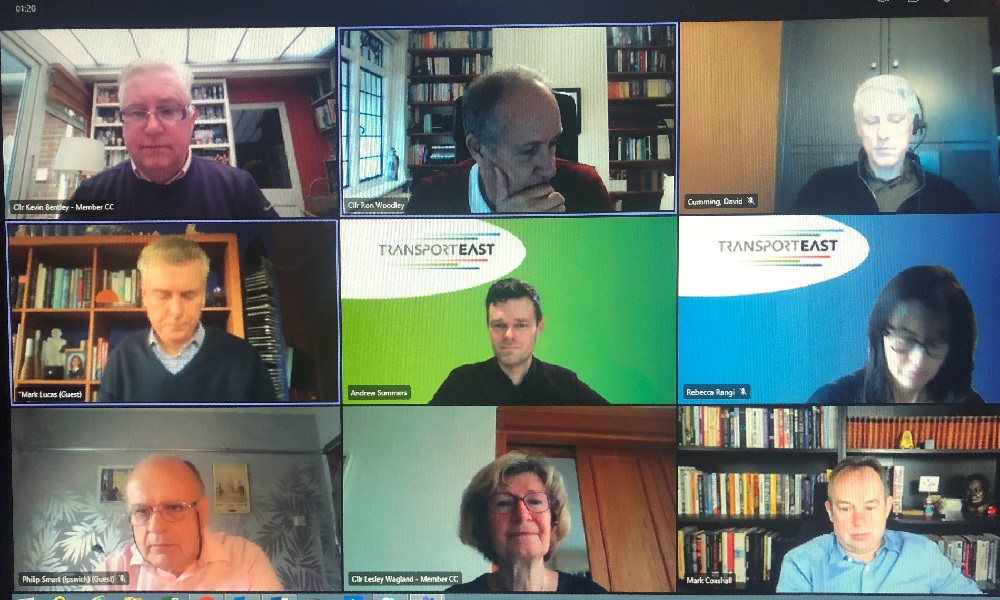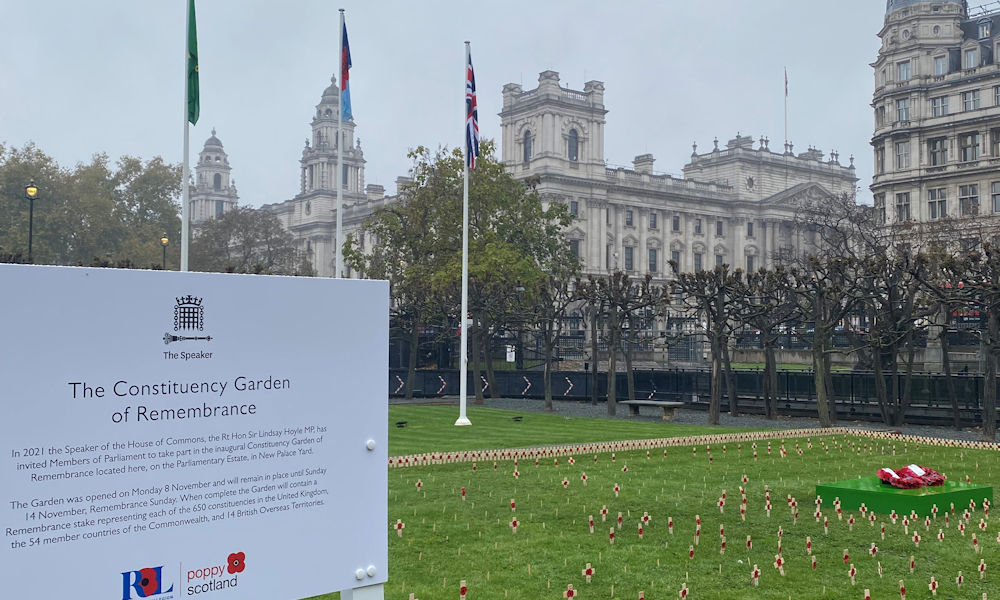The past eighteen months have once again highlighted why our NHS and social care sector is so incredible. We all owe a great deal to those doctors, nurses, carers and other NHS and care sector staff that have given so much for our collective health and wellbeing.
That’s why I was delighted to be represented on the Norfolk and Norwich University Hospital’s briefing for Norfolk MPs about their Five Year Strategy this past Friday. (I was disappointed not to be well enough to join the virtual meeting in person due to having not recovered enough from my recent bout of Covid).
Among what was discussed, the meeting explained in greater detail how the hospital intends to progress over the coming years; what it is doing well; what it can improve on; what it needs greater help with; and how it can work more effectively with the likes of social care.
Rest assured, I remain committed to doing all I can to support our local NHS, and I look forward to continuing my conversations with the NNUH team in the weeks and months ahead.
If we are to achieve the Government’s Net Zero targets, move towards a ‘greener ’more healthier 21st century way of life and take the necessary steps required in the fight to tackle climate change, we need to plan smarter and address a number of key issues.
That’s why I welcomed the chance to listen in to Transport East’s virtual meeting this morning – at which the early stages of their plans to decarbonise the East of England’s transport network were outlined in greater depth.
Did you know that transport emissions are the largest source of greenhouse gas emissions in the East of England? 42% of all greenhouse gases here come from transport (significantly higher than the average of 28% for other regions).
While there are a variety of factors that contribute to this higher figure, there can be no doubt that by taking measures to bring that percentage down we can take a major step towards helping our environment and improving the health and lifestyles of us all.
Our region is home to much of the science and innovation that is leading in the fields that will help us achieve that – ensuring thousands of exciting new jobs will be created for us here in Norfolk, in turn spreading positive growth and prosperity to our local communities.
I look forward to seeing Transport East’s plans develop further, and to continuing my efforts locally and in Westminster to help bring about the ‘greener’ future we all need and desire.

A large number of constituents have been in touch with me about the recent fiasco in the Commons over the Committee of Standards Report into Owen Paterson MP’s breach of the Code of Conduct and the ill-judged decision to overturn protocol and make the vote a 3-line Whip, which it should never have been.
The subsequent U turn to reverse that decision and accept the Report was the right thing to do. But the whole sorry saga has understandably damaged already fragile public trust in Parliament and raises a number of important issues which I believe need serious consideration and which I have tried to set out here and am raising with the PM and relevant Ministers.
1. Public trust in Parliamentary standards.
I absolutely understand the deep sense of anger on this issue. Indeed, it is an anger that I have long shared: since my first work in Parliament for the National Farmers Union in the 90s when I saw the “cash for questions” sleaze scandals of the 1990s, and then the cash for peerages and expenses scandals in 2008/09.
Having been brought up to believe that to serve in Parliament is a privilege and an honour, I was and remain appalled by the idea that anyone would want to abuse public office for private gain and I have always been mindful of the danger to our society and freedoms if public trust in Parliamentary democracy collapses.
That’s why as an entrepreneur I started my various campaigns for a better politics: Mind The Gap, Positive Politics and It Starts Here and is in no small part why I decided to give up my business career in 2010 and stand for Parliament here after the appalling expenses scandal in 2008/9: with a mission to stand up for a better type of politics.
It’s why I have always vowed to try and be a different type of politician and to promote a fair, transparent and better brand of politics. That has always been my guiding mission and always will be as your MP. It’s why I make my first and sacred pledge on each election night to serve all the people of Mid Norfolk equally regardless of how they vote. As an MP I’m a public servant committed to strengthen public trust in democracy.
As it is for the vast majority of the new generation of MPs elected in 2010, 15, 17 & 19: the old days of Parliament as a stuffy “gentleman’s club” are long gone. A new generation of us elected in the wake of these scandals deeply understand justifiable public anger at a seemingly unaccountable elite living in a bygone age of privilege.
What we have all discovered as newly elected MPs is the sheer scale & complexity of embracing reform whilst trying to do the job and survive the political turmoil of the last few years.
But the one silver lining from this fiasco - which has not reflected well on Parliament - is that it has given a big boost of urgency and confidence to the case for reform and to those of us pushing it.
2. Tightening the rules for a proper process and accountability
I strongly believe it is essential that Parliament always upholds the highest standards in public life. (They aren’t vague – they are now clearly set out in the Guide to Members)
Whilst MPs are only human and no more or less virtuous or flawed than our constituents, I believe we have a duty to try and set the highest standards. We won’t always succeed. But we should try.
There must be tough and robust checks on Members to ensure they adhere to these standards. It is therefore important that there must be an effective process to scrutinise members and, if necessary, to discipline those who deviate from these principles.
Quite rightly the rules have been massively tightened up in recent years since the expenses scandal. There is a now a complex web of registers and rules which govern the conduct of MPs, including the Independent Parliamentary Standards Authority (IPSA), the Advisory Committee on Business Appointments (ACOBA), the Register of Interests overseen by the House of Commons registrar and the House of Commons Committee on Standards.
As with any code of conduct or legal framework governing people’s right to work, it is vital that the process is seen to be fair and gives both the Prosecutor and Defendant the right to share witnesses, evidence and ensure a fair hearing.
The unfortunate truth is that the process which Parliament put in place - in its rush to appease public anger after the expenses scandal - is far from perfect and is open to legal challenge on the basis that the work of the Committee on Standards should give all Members of Parliament (irrespective of party) the right to appeal and a fair hearing.
Lawyers have all made clear that the current process is deeply flawed and would never stand up in the real world outside Parliament: all citizens charged with a disciplinary offence have a right to fair process.
Of course, getting a sensible debate on all this in the midst of a political furore of partisan politics is impossible.
I therefore welcome that the Government will be looking to work on a cross-party basis to achieve improvements in our system for future cases. The Government has been clear that this should not be based on a single case or applied retrospectively.
I understand that Ministers will bring forward more detailed plans once there have been cross-party discussions. I am sure you can appreciate that it would not be appropriate for me to comment on individual cases under review by the Committee.
The current flaws in the system mean that too often grievous breaches, such as Mr Paterson's, are conflated with administrative oversights with no proper distinction between serious and minor cases. MPs are required to interpret the guidance on an individual basis with no significant legal guidance at hand.
Legitimate administrative errors can easily be made, as I discovered through the ACOBA process and was later exonerated for. (As Lord True said in his letter to me regarding ACOBA, there is an urgent need ‘to improve the operation and efficacy’ of the system and, crucially, debate ‘whether a lighter touch regime is appropriate for unpaid, voluntary roles with not-for-profit organisations’, as in my case. I fully support that drive and believe we do need an overhaul of standards procedure to separate voluntary charitable work from paid lobbying, which are two entirely different things.
First and foremost that overhaul should be based on the principle that MPs are held to the same standard as the people we serve. But there needs to be some common sense applied. Not-for-profit work to generate funds to support local charities in Mid Norfolk, which I have long been proud to support, should clearly not be treated in the same way as serious lobbying work for multinational companies commanding six-figure salaries. Lumping the two together, as is currently the case, simply creates confusion and distrust and discredits the integrity and probity of the system.
3. Owen Paterson’s case.
Having reviewed the evidence in Owen Paterson's case, it is clear that he was in serious breach of the rules. The Committee on Standards was very clear and outlined multiple breaches over a protracted period of time.
Whilst I have every sympathy for the horrific personal circumstances of the tragic suicide of Owen Paterson's wife Rose - a friend who I worked closely with on my charitable project The Bridge of Hope - and Owen Paterson’s complaint that the process wasn’t fair (for instance, the fact that the Commissioner for Standards said in writing that she was clear he was in breach before she had seen his evidence), I cannot in good faith explain how he wasn’t aware of the new rules and I believe he was right to resign.
If the vote last week had not been a 3-line whip, I would have voted in favour of the Standards Committee Censure (and any Amendment recommending the process be reviewed).
In the hours before the vote last week, I was busy in the Department of Business on Ministerial duties and (as is required of all Ministers of the Crown subject to Cabinet Collective Responsibility) received instructions just before the vote to vote for the compromise censure motion.
I was concerned at the time that the wording looked wrong and that the correct course would be to uphold the findings of the Committee on Standards for Mr Paterson to be censured, and only then review the process. Many fellow MPs were deeply unhappy that night and fed back our concerns to Government business managers – contributing to the correction of the Government’s position in the morning.
It would have been far better if it hadn’t happened in the first place. The Leader of the House was right to apologise.
4. Government Whipping of conscience votes.
Whilst Government whipping is the fundamental mechanism by which any democratic Government is able to command the authority and discipline to govern through Parliament, with Ministers forced to resign if they are unable to accept the Government’s position, there is a longstanding convention in Parliament that votes on Parliamentary standards and matters of conscience are not whipped.
It was clearly wrong to decide to whip the vote last week - as the Leader of the House said when apologising and reversing the decision the next morning.
Our constitutional freedoms are enshrined and protected through a complex web of counter-balancing pressures requiring the judgment of individual MPs elected on a Party ticket to represent a constituency. Each of us has to make judgements every day on issues to try and balance those conflicts as best we can.
Whilst whipping is key to the ability of any Government to govern, our constitution requires it has to be used judiciously and sensitively to maintain public trust.
5. MPs outside interests.
The controversy last week also reignited the issue of MPs outside interests - in Owen Paterson’s case his work for a medical diagnostics and food processing business.
The current system is based on the clear principle that whilst it is okay for MPs to have outside earnings, they must be registered and declared in any dealing with MPs or Government so as to avoid any risk of a perceived conflict of interest.
(Owen Paterson’s offence was to fail to declare them in correspondence, and to mis-use Parliamentary privilege in support of his outside interests.)
This has rightly led to a (in my view long overdue) national debate about what the appropriate balance of external interests for an MP is. The case of Geoffrey Cox MP (a top barrister with a fee of c£1000 / hour) has rightly generated questions about what a fair and reasonable outside interest is.
I have long maintained that the current system isn’t fit for purpose and should be reformed on some very clear principles:
- Public trust in the system should be the key consideration.
- No one should seek - or be able to use - public office for private gain.
- It is, however, a benefit to Parliament and democracy that MPs are not all professional politicians with no career or interests outside politics, and MPs with professional qualifications should be allowed / encouraged to maintain them
- Serving as a Member of Parliament these days is and should be a busy job: any outside interest should only be allowed to take up a few hours each week.
- As well as the income received, MPs should be required to register the time spent - which should be capped.
- MPs with outside interests who can legitimately earn £1000/hour as a barrister or brain surgeon can do so but must declare it and not exceed the hours cap.
- MPs who choose not to use their extra-curricular allocation on other work but on their constituency can do so and show so.
I believe this system would be much more acceptable, fair, reasonable and enforceable and help to boost damaged public trust.
6. Reform of the whole political system.
In the end all these issues are linked and have to be viewed in the round as part of the wider set of issues at the heart of our constitution: the powers of the UK Parliament, the relationship between the legislature & the courts, the devolved Parliaments of Scotland, Wales and Northern Ireland, the constitution of the House of Lords, party funding and a host of other issues.
I have long believed there is a growing public appetite for our constitution, Parliament and balance of national versus local powers to be refreshed to better reflect the age in which we live.
The tumultuous last decade following the crash of 2007/8, the Coalition, austerity, the Brexit vote and now the pandemic has shown both the resilience and the need for modernisation of our system of government.
Personally, I believe that means:
- Lords reform: with an 80:20 elected Upper House, elected Peers from all parts of the country including a PR element to ensure all parties have some representation
- A ban on Party Donors being able to be given a place in the Upper House of Parliament
- Much bolder decentralisation and devolution
- Reform of MPs outside interests (as above)
As a Conservative I believe in reform by gradual incremental evolution rather than revolution. But that means our institutions and elected representatives being open to the process of gradual reform and working alongside the day job to constantly improve and strengthen the institutions of our precious democracy.
History suggests that the more common outcome of human nature is benign neglect until a crisis that triggers long overdue reform.
I believe we are in the midst of that crisis now, and that all Parliamentarians who value our precious liberal democracy need to redouble our efforts to try and get the balance right.
Please rest assured that I very much understand (and share many of) of the concerns being expressed and will ensure all your concerns are raised at the highest levels of government
I am absolutely in favour of the highest possible standards in public life and will continue to do all I can as your MP towards that end.
As we look towards a greener Net Zero future in which we should all be embracing healthier lifestyles. We must put People and Places at the heart of the vision for public transport and accessibility for all.
That is why it is great to see Attleborough train station now has extra parking capacity. A part of the transformation partnership between Greater Anglia and Norfolk County Council, these new spaces, along with new electric car charging points and energy efficient LED lights, will make access to our region’s rail network far easier and greener for so many.
Well done Greater Anglia! I look forward to seeing more progress soon.
This morning my staff placed a tribute in the first ever Constituency Garden of Remembrance in New Palace Yard on behalf of those in Mid Norfolk who have made the ultimate sacrifice to defend our freedoms.
I was disappointed to not be able to lay the tribute myself but am currently isolating in Norfolk with Covid-19.
Commemorating the fallen is a commitment to a better future. We will remember them.


Great to see that Wymondham Town Council have arranged for the War Memorial on Town Green to be cleaned in time for the Remembrance Parade.
My team took and shared with me the below photos while I am isolating with Covid-19.
You can read more about the War Memorial’s revamp here on there Town Council website: https://www.wymondhamtowncouncil.org/news/war-memorial-revamp
Well done to all in involved.
Lest We Forget.

Excellent to see that Novo Farina are expanding due to demand! This is a great example of agri-innovation (pioneered here in Norfolk!) and I was delighted to visit them recently.
- Environment and climate change
- Improving soil quality
- Locally grown/carbon friendly
- Sustainability
- Health and diet benefits
- Coeliacs
- UK plc
- Local jobs
- Supporting local pea farmers
Great to see them working closely with the Norwich Research Park on improvements to pea varieties and novel genetics to boost protein level and quality. The NRP cluster and Cam-Nor Tech Corridor makes our area one of the most exciting centres for science, research and innovation – not only in the UK but in Europe and globally. These will go on to create thousands of the jobs for tomorrow for Norfolk people, spreading the prosperity and innovation that will make all our lives better.
Excellent to see EDP 24 and others covering this and seeing the wider opportunity: https://www.edp24.co.uk/news/business/norfolk-vegan-pea-firm-novo-farina-plans-expansion-8465662
Click here to read more about my recent visit: https://www.georgefreeman.co.uk/news/novo-farina-factory-visit

2 Women every week are killed by a current or former partner.1 in every 3 women will experience domestic abuse in her life. Norfolk saw a 40% increase in domestic violence in the pandemic.
These are truly shocking statistics than really do need addressing urgently.
That is why I was pleased to convene a Roundtable call with all the key local leaders and the Daisy Programme to discuss what can be done to help bring these truly horrific statistics down. To see more of their wonderful work click: https://www.daisyprogramme.org.uk/
For far too long, the A47 has lagged behind other crucial roads in the UK – holding back our region’s vast potential and putting the lives of motorists at higher risk than those in other parts of the country.
That’s why I was disappointed to miss National Highway’s latest A47 Parliamentary Forum on Friday due to having been struck down by Covid – which I had hoped to join in person in order to help keep the pressure on National Highways and ensure they get on and deliver the long overdue dualling of the North Tuddenham-Easton stretch.
My office did attend in my absence however and, rest assured, I remain committed to following up and monitoring National Highway’s progress closely. To learn more about my work to improve Norfolk’s roads, please visit my campaign page here.
I have been contacted by a number of constituents regarding booster COVID-19 vaccinations.
The COVID-19 booster programme is the rollout of an additional vaccine dose to people who have previously received two doses of a COVID-19 vaccine to ensure continued protection for those most at risk from COVID-19.
Booster jabs are now being offered to eligible patients across the UK in line with national and JCVI guidance.
I have been in close contact with NHS Norfolk and Waveney CCG since the first vaccine roll-out and am now sharing their webpage on booster vaccines, including on who is currently eligible and how to book.
Please see the relevant information here.
